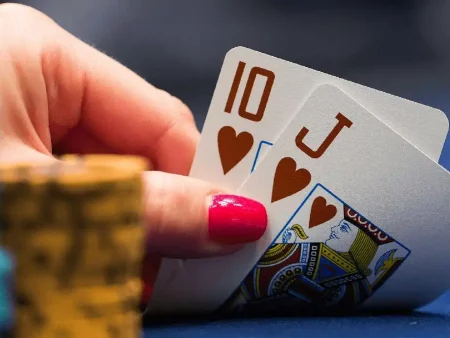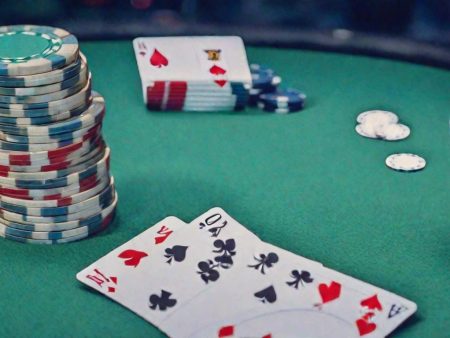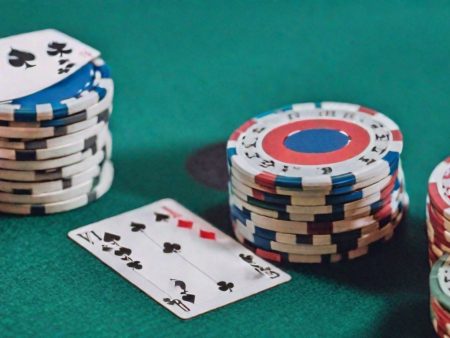For bettors, understanding the basic terminology and meanings in gambling is crucial to avoiding mistakes and showcasing their expertise. In poker, the term cooler describes a situation where players are compelled to enter a game with a large pot due to exceptionally strong cards. Typically, it refers to the player who ends up on the losing side of such encounters. For example, “He performed well in the tournament but hit a poker cooler before the final table.” In essence, a cooler is akin to a bad beat, where a player makes the right decisions but is ultimately unlucky.
The Inevitability of Coolers in Poker
Coolers are a natural part of poker dynamics and cannot be entirely avoided, even when playing at a licensed and reputable online casino. However, skilled players can reduce their frequency by improving their ability to read opponents, analyzing statistics, and strategizing for subsequent rounds.
Starting Hands and the Role of Coolers
Coolers often arise when strong starting hands collide during the preflop. For instance, consider a scenario where Maxim holds pocket aces (AA) and Nikita has pocket kings (KK). In such cases, preflop betting is a rational move, despite the risk of a cooler. Similarly, coolers can occur postflop, when players with powerful hands are unwilling to fold. A notable example is Vanessa Selbst’s elimination from the 2017 World Series of Poker. Holding a full house (AAA77), she lost to quads, underscoring the unpredictable nature of poker.
While coolers may seem costly in the short term, they even out over time. Experienced players recognize that scenarios like AA vs. KK preflop all-ins are part of poker’s inevitabilities. It’s important to distinguish coolers from bad beats: the former results from circumstances where correct decisions lead to losses, while the latter involves unexpected defeats despite a high probability of winning.
Read also: What is a call in poker?
Navigating Cooler Situations: Don’t Panic
Developing a strategy to completely avoid coolers is unrealistic. Poker’s essence lies in its unpredictability, where any player can hold a hand strong enough to challenge an opponent’s. Coolers manifest in various ways, from scenarios with minimal winning chances to moments where the odds favor one player over another. Nonetheless, the drama of coolers, such as quads beating a full house, adds to poker’s enduring allure.
Misconceptions About Coolers
Beginner players often misinterpret cooler situations. Losing to a stronger hand doesn’t always qualify as a cooler. Here are common misunderstandings:
- Overestimating Pot Odds: Players may overvalue their hand’s strength. For example, calling a bet with a nut flush on a paired river may backfire if the opponent has a full house.
- Refusal to Fold: Except for a royal flush, any hand may warrant folding under specific conditions. Decisions should consider the opponent’s statistics and play style.
- Overreliance on Statistics: While useful, statistics should not be the sole factor. For instance, an aggressive player might still hold a strong hand, even with a high bluff frequency.
- Ignoring Opponent Behavior: Misjudging opponents’ moves, such as overbets or all-ins on dangerous boards, can lead to unnecessary losses.
Key Mistakes to Avoid
Beginner players often make these errors due to a lack of experience or theoretical knowledge:
- Failing to account for dangerous turn or river cards.
- Misjudging pot odds.
- Ignoring situations where opponents clearly have the nuts.
- Assuming excessive bluffing in micro-limit games.
Read also: What is a Button in Poker.
While no universal strategy can eliminate the emotional impact of coolers, players can minimize their frequency by improving their analysis of opponents’ ranges, keeping detailed records, and honing their decision-making skills. Coolers are an inherent part of poker, serving as both a challenge and a testament to the game’s depth. By focusing on continuous learning and practice, players can mitigate their effects and maintain composure in high-stakes situations. For more insights into the gambling world, visit our blog. Looking for strategies that actually work? Go to the gaming strategy guide and explore verified methods!
FAQ: What is a cooler in poker and how to avoid too expensive calls
How can I recognize a cooler?
A cooler is identified when both players have strong hands, but one player's hand is mathematically favored. Even if the losing player plays optimally, they end up losing because of the stronger hand their opponent holds.
Can a cooler be avoided in poker?
While coolers are an unavoidable part of poker, experienced players can reduce their occurrence by being mindful of their opponents' playing styles and statistics. However, no strategy can completely eliminate the risk of facing a cooler in a game.
What should I do if I experience a cooler?
If you experience a cooler, the key is to stay calm and not let it affect your play. It is part of the game, and most seasoned players know that coolers will even out in the long run, even though they may seem unfair at the time.
How can I minimize losses during a cooler?
You can minimize losses during a cooler by staying focused and playing your cards intelligently. Even when the situation seems inevitable, understanding that you made the correct decision can help prevent frustration and emotional decisions that could lead to further losses.
Are coolers profitable in the long run?
While coolers themselves are not directly profitable, they are an inherent part of the game. Over time, the frequency of coolers balances out, meaning that players who make correct decisions will still profit in the long run, even though they may suffer losses from coolers occasionally.
How do coolers impact a player’s mindset?
Experiencing coolers can affect a player's psychological state, leading to frustration or self-doubt. However, experienced players know how to manage their emotions and avoid letting coolers dictate their strategy, thus preserving their overall approach to the game.






